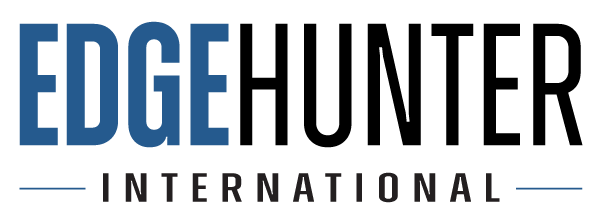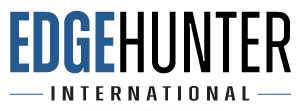Human Resources is where business strategy and people power meet. Nearly 70 percent of companies say great hiring depends on HR’s strategic input. That sounds ordinary until you realize most hiring mistakes come from skipping the HR playbook. The real payoff appears when HR shifts from paperwork to partnership and transforms recruiting into a true growth engine.
Quick Summary
| Takeaway | Explanation |
|---|---|
| HR transforms recruitment into a strategic function. | Human Resources elevates recruitment from filling roles to aligning talent with organizational goals, driving performance and growth. |
| Effective collaboration enhances talent acquisition success. | Clear roles and communication between HR and hiring managers create an integrated recruitment process that meets organizational needs. |
| Modern recruitment strategies are data-driven. | Using predictive analytics and technology tools enables HR to identify and attract the right candidates efficiently. |
| Diversity enhances competitive advantage in recruitment. | Prioritizing diversity creates richer candidate pools and fosters innovation, making organizations more competitive. |
| Employer branding attracts top talent effectively. | Communicating organization values and culture strengthens employer brands, making the organization more appealing to potential employees. |
Defining the Role of Human Resources in Recruitment
Human Resources (HR) plays a pivotal role in recruitment, serving as the strategic bridge between organizational needs and talent acquisition. At its core, the role of human resources in recruitment encompasses identifying, attracting, screening, and selecting qualified candidates who align with a company’s culture and objectives.
Strategic Talent Acquisition Framework
Recruitment is far more complex than simply filling open positions. HR professionals develop comprehensive strategies that transform talent acquisition into a systematic, data-driven process. Our staffing solutions highlight how strategic HR approaches can dramatically improve hiring outcomes.
The recruitment process managed by HR typically involves several critical stages:
- Analyzing organizational workforce requirements
- Developing precise job descriptions
- Identifying potential candidate sources
- Implementing effective screening mechanisms
- Conducting thorough candidate evaluations
Organizational Alignment and Candidate Selection
According to SHRM Research, HR’s recruitment function extends beyond mere candidate selection. HR professionals must understand organizational culture, strategic goals, and future workforce needs to identify candidates who represent not just technical competence, but holistic organizational fit.

Successful HR recruitment strategies integrate multiple dimensions:
- Cultural compatibility assessment
- Skills and competency matching
- Long-term potential evaluation
- Diversity and inclusion considerations
By combining systematic processes with nuanced human judgment, HR transforms recruitment from an administrative task into a strategic organizational capability. The ultimate goal is building teams that drive business performance and sustainable growth.
The table below compares traditional recruitment with modern, strategic HR recruitment as described in the article, highlighting key differences in approach and focus.
| Aspect | Traditional Recruitment | Strategic HR Recruitment |
|---|---|---|
| Main Objective | Filling open positions | Aligning talent with organization |
| Process | Transactional, ad-hoc | Systematic, data-driven |
| Candidate Fit | Skills-based | Cultural & competency-based |
| Role of HR | Administrative | Strategic partner |
| Technology Use | Minimal | Predictive analytics, automation |
| Outcome Focus | Immediate need | Long-term growth and adaptability |
| Diversity Approach | Compliance-focused | Competitive advantage |
The Importance of Human Resources in Attracting Talent
Attracting top talent has become increasingly complex in a competitive global workforce. Human Resources plays a critical role in developing sophisticated strategies that transform recruitment from a transactional process into a strategic organizational advantage. Talent attraction is no longer about filling positions but creating compelling employee experiences.
Building Compelling Employer Brands
Modern HR professionals understand that attracting exceptional candidates requires more than traditional job postings. Our effective hiring plans for 2025 demonstrate how sophisticated talent attraction strategies can differentiate organizations in a crowded marketplace.
According to Deloitte’s Global Human Capital Trends, organizations must craft authentic employer brands that communicate unique value propositions. Successful talent attraction involves:
- Creating transparent communication channels
- Highlighting organizational culture and values
- Demonstrating commitment to employee growth
- Showcasing meaningful work opportunities
Strategic Talent Engagement Techniques
Talent attraction extends beyond initial recruitment. HR professionals develop comprehensive engagement strategies that begin before a candidate applies and continue throughout their employee lifecycle. This approach requires understanding emerging workforce dynamics, technological innovations, and evolving candidate expectations.
Key strategic approaches include:
- Leveraging digital recruitment platforms
- Developing personalized candidate experiences
- Implementing robust employer branding initiatives
- Creating flexible and inclusive workplace environments
By transforming talent attraction from a reactive to a proactive process, HR becomes a critical strategic partner in organizational success. The ability to consistently attract, engage, and retain top talent represents a significant competitive advantage in today’s dynamic business landscape.

How Human Resources Collaborates with Hiring Managers
Collaboration between Human Resources and hiring managers is a critical component of successful talent acquisition. This partnership transforms recruitment from an isolated function into a strategic, integrated process that aligns organizational needs with talent selection.
Defining Collaborative Recruitment Roles
Effective collaboration requires clear understanding of each party’s responsibilities. HR professionals serve as strategic advisors, while hiring managers provide specific departmental expertise. Our bilingual HR generalist roles exemplify the nuanced skill sets required for successful interdepartmental coordination.
According to Harvard Business Review, successful collaboration involves:
- Establishing transparent communication protocols
- Defining precise candidate requirements
- Creating shared evaluation frameworks
- Maintaining consistent feedback mechanisms
Strategic Alignment and Decision Making
The collaboration between HR and hiring managers extends beyond simple candidate selection. It involves a comprehensive approach to understanding organizational talent requirements, potential skill gaps, and long-term workforce planning. Successful partnerships integrate data-driven insights with human judgment.
Key collaborative strategies include:
- Joint workforce planning sessions
- Comprehensive skills gap analysis
- Mutual candidate assessment protocols
- Continuous performance evaluation frameworks
By developing a symbiotic relationship, HR and hiring managers create a robust talent acquisition ecosystem that supports organizational growth and adaptability. This approach ensures that recruitment becomes a strategic function rather than a transactional process, ultimately driving organizational performance and competitive advantage.
The following table summarizes core collaborative strategies and responsibilities shared between Human Resources and hiring managers, illustrating how their partnership enhances talent acquisition outcomes.
| Collaboration Aspect | HR Responsibility | Hiring Manager Responsibility |
|---|---|---|
| Communication | Establish transparent protocols | Provide detailed role insights |
| Candidate Requirements | Guide job description creation | Define skills and qualifications |
| Evaluation Frameworks | Develop structured criteria | Conduct technical assessments |
| Candidate Assessment | Screen for organizational fit | Assess team-specific capabilities |
| Feedback Mechanisms | Collect and organize feedback | Give timely input on candidates |
| Workforce Planning | Facilitate joint planning | Identify future departmental needs |
Key Concepts in Human Resources Recruitment Strategies
Recruitment strategies have evolved from simple hiring processes to sophisticated talent acquisition frameworks that drive organizational success. Modern HR recruitment strategies are data-driven, technology-enabled, and strategically aligned with broader business objectives.
Talent Acquisition Ecosystem
Today’s recruitment landscape demands a holistic approach that goes beyond traditional candidate selection. Our blog insights highlight the complex interconnections between recruitment techniques and organizational performance.
According to McKinsey & Company, effective recruitment strategies must incorporate:
- Comprehensive talent mapping
- Predictive workforce analytics
- Organizational culture alignment
- Dynamic skills assessment methodologies
Strategic Recruitment Foundations
Successful HR recruitment strategies are built on understanding the intricate relationship between organizational needs, candidate potential, and long-term business goals. Recruitment is no longer about filling positions, but about building strategic human capital.
Key strategic recruitment concepts include:
- Proactive talent pipeline development
- Diversity and inclusion integration
- Continuous learning and adaptability assessment
- Technology-enhanced candidate experience design
By embracing these advanced recruitment strategies, HR professionals transform talent acquisition from an operational function into a critical business driver that directly influences organizational competitiveness and innovation potential.
Real-World Examples of Human Resources in Recruitment
Real-world recruitment scenarios demonstrate the complex and strategic nature of modern HR practices. Human Resources professionals navigate multifaceted challenges that require innovative approaches to talent acquisition across diverse organizational contexts.
Technology-Driven Recruitment Transformations
Emergent technologies have revolutionized recruitment strategies. Our recruitment specialist team exemplifies how advanced technological integration can streamline talent acquisition processes.
According to Gartner Research, successful technology-driven recruitment strategies include:
- Artificial intelligence candidate screening
- Predictive analytics for talent matching
- Virtual interviewing platforms
- Automated candidate engagement systems
Diversity and Inclusion Recruitment Approaches
Progressively minded organizations are implementing sophisticated recruitment strategies that prioritize diversity and holistic candidate evaluation. Successful HR teams recognize that diversity is not just a compliance requirement but a critical competitive advantage.
Practical diversity recruitment examples involve:
- Blind resume screening processes
- Structured interview frameworks
- Inclusive job description language
- Targeted recruitment in underrepresented talent pools
These real-world recruitment approaches demonstrate how HR professionals have transformed talent acquisition from a transactional process into a strategic organizational capability that drives innovation, performance, and sustainable growth.
Unlock the Power of Strategic HR Recruitment with Edge Hunter Group
Are you struggling to bridge the gap between your hiring goals and actual results? As highlighted in this article, effective recruitment demands much more than just filling open positions. Modern HR teams need strategic frameworks, data-driven processes, and a keen understanding of cultural fit to build high-performing teams. When talent shortages, misaligned hiring, or long time-to-fill rates impact your business goals, the stakes are too high to settle for outdated practices.

It’s time to move beyond traditional recruitment and gain access to a wider pool of qualified candidates tailored for your industry and business needs. Edge Hunter Group offers flexible staffing solutions, from full-time placements to executive search and RPO, that are designed to accelerate your hiring process and reduce risk. Discover how you can implement human resources recruitment strategies that support real business growth. Visit Edge Hunter Group now to request a consultation or explore our latest job listings and HR insights. Secure the talent edge your organization deserves today.
Frequently Asked Questions
What is the primary role of Human Resources in recruitment?
Human Resources is responsible for strategically aligning the recruitment process with organizational needs. This includes identifying, attracting, screening, and selecting candidates who fit well with the company culture and goals.
How can HR professionals enhance their recruitment strategies?
HR professionals can enhance recruitment strategies by implementing data-driven processes and incorporating technology. Start by analyzing workforce requirements and developing precise job descriptions to attract the right candidates.
What steps should HR take to ensure effective candidate screening?
To ensure effective candidate screening, HR should develop structured evaluation criteria and implement multiple stages of screening, such as initial phone interviews followed by in-depth assessments. Aim to complete these stages within a typical hiring timeline of 30 days.
How does HR collaborate with hiring managers during recruitment?
HR collaborates with hiring managers by establishing clear communication protocols and defining candidate requirements together. Schedule joint planning sessions to develop a mutual understanding of organizational needs and candidate qualifications.
What strategies can HR use to attract diverse talent?
HR can attract diverse talent by implementing blind resume screening and using inclusive language in job descriptions. Focus on targeted recruitment efforts in underrepresented talent pools to broaden your outreach and enhance diversity within your teams.
Why is employer branding important in the recruitment process?
Employer branding is crucial because it helps organizations communicate their unique value propositions to potential candidates. Invest time in creating transparent channels that showcase company culture and highlight opportunities for employee growth, making your organization more appealing to top talent.
Recommended
- Need a Human Resources Team for Hire? | Edge Hunter staffing
- Hiring now: Bilingual HR Generalist
- Hiring now: Recruitment Specialist US (remote)
- RPO Services for Large Businesses | Scalable Talent Solutions



